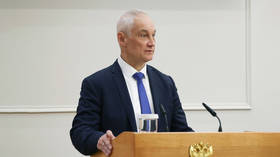Australia to offer an entire country asylum – PM

The Australian government has said it’s ready to offer asylum to the entire population of Tuvalu, a low-lying Pacific nation considered at risk of being submerged due to rising sea levels. Prime Minister Anthony Albanese made the announcement on Friday at the Pacific Islands Forum Leaders' Meeting in the Cook Islands.
Under a pact signed by the two nations, Australia committed to providing assistance to Tuvalu “in response to a major natural disaster, health pandemics and military aggression,” and to establish a “dedicated intake” granting permanent residency to Tuvaluans in Australia. An initial cap will be set at 280 people per year.
Albanese called the move “groundbreaking” and “the most significant agreement between Australia and a Pacific island nation ever.”
Tuvalu is a small nation made up of nine low-lying islands in the southwest Pacific Ocean between Australia and Hawaii. It has a total area of 26 square kilometers and a population of 11,426.
According to the United Nations Development Programme (UNDP), half of the capital, Funafuti, is expected to be flooded by tidal waters by 2050.
Two years ago, a video of Tuvalu's former foreign minister Simon Kofe standing knee-deep in the ocean to highlight the climate crisis went viral. A year later, he said Tuvalu plans to create a digital version of itself to preserve its history and culture.
Acknowledging that climate change remains “the greatest threat to the livelihoods, security and well-being of people in the Pacific,” Albanese’s office said Australia will make additional investments to “build the resilience of our Pacific partners.”
Canberra will commit at least $350 million to climate infrastructure in the region, including $75 million for a program to develop renewable energy in remote and rural areas.
At a press conference after the meeting, Albanese said Australia was also “open to approaches from other countries on how we can enhance our partnerships” with Pacific nations.













